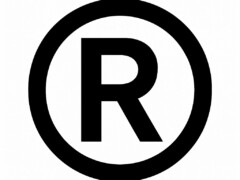
A solid lab tech like Janice here is always useful when asserting statutory defenses to Prop 65 claims
Statutory defenses to Prop 65 claims give food manufacturers specific legal grounds to challenge liability when facing enforcement under California’s Proposition 65. These defenses include arguments that the product does not exceed regulatory thresholds, that the business qualifies for a small entity exemption, or that the chemical exposure is naturally occurring. Each defense carries its own evidentiary burden, regulatory citation, and cost-benefit profile. Understanding how and when to assert these statutory defenses is critical for manufacturers seeking to minimize legal exposure and preserve market access in California.
If you are a manufacturer who has received a 60-day notice about a Prop 65 violation, read this first: Use the Attorney Client Privilege to Prepare for Litigation. Every valid defense starts with controlled analysis protected under privilege.
The Common Statutory Defenses to Proposition 65 Claims
- Establish that the product does not violate the statute. The most direct statutory defense is scientific. If the product or batch does not contain the listed chemical at levels exceeding the established No Significant Risk Level (NSRL) or Maximum Allowable Dose Level (MADL), then no Prop 65 warning is required. Manufacturers must conduct accredited, validated laboratory testing to establish chemical content and exposure levels. Retain counsel before testing to ensure that findings remain confidential to ensure that disclosure only supports the defense!
- The Small Business Exemption. The law exempts businesses with nine or fewer employees from Prop 65’s warning requirements. This exemption applies regardless of product content or exposure. However, manufacturers should not rely on this defense without legal guidance. Certain retailers, copackers, or upstream suppliers may still bear compliance obligations even when the manufacturer qualifies as a small business. (See Cal. Health & Safety Code § 25249.11(b) “‘Person in the course of doing business’ does not include any person employing fewer than 10 employees…”)
- Naturally Occurring Chemical Exemption. Some chemicals, particularly heavy metals like arsenic, cadmium, and lead, appear in food due to natural uptake from soil or water. The naturally occurring exemption may apply if the manufacturer can prove that no human activity introduced or increased the chemical content beyond unavoidable levels. To support this defense, the manufacturer must document supply chain controls, environmental testing, and standard industry practices. This defense often requires expert reports, which must be commissioned through legal counsel to remain protected. (See 27 CCR § 25501(a) – Exposures to Naturally Occurring Chemicals in Food A chemical in food is considered naturally occurring if it is a natural constituent of the food and has not been increased by human activity, or cannot be reduced below naturally occurring levels by good agricultural or manufacturing practices.)
Challenges and Costs of Asserting Statutory Defenses
Establish that the product does not violate the statute. Proposition 65 plaintiffs attorneys are very forthcoming with laboratory reports that support their Prop 65 claim. They often voluntarily turn over lab reports and lot/batch numbers of the products tested. It is always wise to verify the result with an independent analysis performed by the manufacturer. If the manufacturer’s retained sample from the same batch yields a conflicting result, that alone does not resolve the matter. Two opposing lab results create a triable issue of fact. Plaintiffs’ firms use that uncertainty to maintain settlement leverage and to build a credible path toward expensive litigation. Defending the product’s compliance through scientific testing may appear straightforward, but asserting this statutory defense in full requires litigation. If the expected cost of trial exceeds the product’s settlement value, a strategic settlement often serves the manufacturer better than a symbolic legal stand.
The Small Business Exemption. Believe it or not this exemption is the most limited defense available. The legal definition of “employee” includes part-time and temporary workers. A manufacturer that employs ten individuals—each for a single shift —may still exceed the 10 employee threshold. Even when the exemption clearly applies to the manufacturer, it does not shield downstream entities. A large retailer in California with more than ten employees remains subject to Prop 65. That retailer, in turn, will demand indemnification from its supplier, regardless of the supplier’s exemption status. Asserting this defense may avoid direct liability, but it rarely avoids pressure or cost.
The Naturally Occurring Exemption. The naturally occurring chemical exemption under Cal. Code Regs. tit. 27, § 25501(a) imposes an enormous evidentiary burden on the manufacturer. To assert this defense, the manufacturer must prove that no human activity contributed to the presence of the listed chemical. That standard requires expert testimony covering every stage of production—from cultivation to final packaging. Soil composition, equipment and processing practices, and packaging materials must all be examined to ensure no transfer of the chemical occurred during manufacture or shipment. The resulting expert reports must survive scrutiny from plaintiffs who are experienced in discrediting marginal scientific defenses. These costs can be justified only when sales volume or long-term reputational risk justifies a protracted legal strategy. This defense may lower the settlement value of the case, but only when the investment in expert analysis has enough downstream impact to tip the scales.
Click below for the next articles in the series:
- Complying with Proposition 65 labeling requirements
- Defense Strategies for Big Companies (which will include extensive litigation)
- Defense Strategies for Smaller Companies.
If you would like to know more about how this firm can assist with litigation, please review our Litigation Services page and contact us.
Our subscription service
Clients realize the greatest value out of our services when they stack them together comprehensively. Our subscription-based service plans enable our clients to weave our services into the fabric of their businesses at affordable and predictable rates.
















